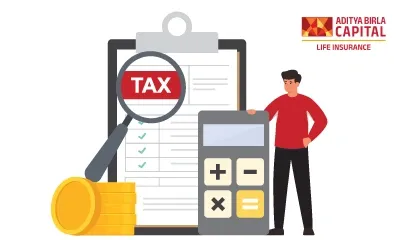Are you planning for a secure and comfortable retirement? Imagine having a financial safety net that ensures your golden years are worry-free. We're here to introduce you to a smart way to make your retirement dreams come true. Have you heard about Section 80CCC? If not, let's explore how it can help you save taxes and build a pension fund for your future.
What is Section 80CCC?*
Section 80CCC of the Income Tax Act is your ticket to a brighter retirement. It allows you to claim deductions for contributions made to specific pension funds. These contributions are your proactive steps towards building a robust pension fund, ensuring financial stability when you retire.
How Much Tax is Exempt Under Section 80CCC?
Now, let's talk numbers. Under Section 80CCC, you can claim deductions for the amount you invest in eligible pension plans. This deduction is part of the overall limit available under Section 80C, which is currently up to ₹1.5 lakh per financial year. So, when you invest in your pension fund, you not only secure your future but also reduce your taxable income.
Eligibility for Deduction Under Section 80CCC
To enjoy the benefits of Section 80CCC, it's important to understand who is eligible for the deduction. This section is open to individuals and Hindu Undivided Families (HUFs) who contribute to specific pension plans offered by insurance companies. So, if you're planning for your retirement and investing in a pension plan, you're likely eligible to claim deductions under Section 80CCC.
Claim Limit of Section 80CCC
Now, let's talk about the claim limit. Under Section 80CCC, the deductions you can claim are part of the overall limit available under Section 80C of the Income Tax Act, which is currently set at ₹1.5 lakh per financial year. This means that the contributions you make to your pension plan will reduce your taxable income, helping you save on taxes while securing your retirement.
How is the Payout From an Annuity Pension Plan Taxed?
One of the popular choices for retirement planning is an annuity pension plan. An annuity plan provides regular payouts during your retirement years. Here's how the payouts are taxed:
-
Tax on Annuity: The annuity payments received are considered income and are subject to taxation according to your applicable income tax slab at the time of receipt.
-
Deferred Annuity: If you have chosen a deferred annuity plan, where the payouts start after a certain period, the tax is applicable when you receive the annuity payments.
-
Immediate Annuity: In the case of an immediate annuity plan, where payouts begin immediately after the premium payment, the tax is applicable from the very first payout.
-
Tax Deductions on Premiums: It's is pertinent to to note that the deductions claimed under Section 80CCC are only for the premiums paid towards the annuity or pension plan. The annuity payments received during retirement are treated as income and are taxed accordingly as per the applicable tax rates prevailing on the time of receipt of payments based on your income.
Understanding the taxation of annuity payouts is essential for effective retirement planning. It is advisable to consult a financial advisor or tax expert to make informed decisions about your pension fund and tax liabilities during retirement.
What is Section 10 (23AAB)?
Section 10 (23AAB) of the Income Tax Act is an important provision related to pension funds and retirement benefits. This section specifies that any income received by a pension fund set up by a Mutual Fund in accordance with the Pension Fund Regulatory and Development Authority Act, 2013 (PFRDA Act) is exempt from income tax. This exemption applies to the income earned by the pension fund as well as the income distributed by the fund.
In simple terms, this section ensures that the income generated within a pension fund set up by a Mutual Fund for retirement benefits is not subject to income tax. It encourages investments in pension funds, making them an attractive option for retirement planning.
Section 80C and 80CCD^
Section 80C and Section 80CCD are both tax-saving provisions that allow individuals to claim deductions from their taxable income. However, they serve different purposes:
- Section 80C: This section allows individuals to claim deductions for various investments and expenses, including life insurance premiums, Public Provident Fund (PPF) contributions, Employee Provident Fund (EPF) contributions, National Savings Certificates (NSC), and more. The maximum deduction allowed under Section 80C is currently ₹1.5 lakh per financial year.
- Section 80CCD: This section is specifically related to contributions made towards the National Pension System (NPS). Individuals can claim deductions for contributions made to their NPS accounts under this section. The maximum deduction allowed under Section 80CCD is over and above the limit of ₹1.5 lakhs under Section 80 CCE. It has two parts:
- Section 80CCD(1): Employees can claim deductions for their contributions to the NPS, up to 10% of their salary (for salaried individuals) or 20% of their gross total income (for self-employed individuals and non-salaried individuals).
- Section 80CCD(2): Employers' contributions to employees' NPS accounts are eligible for deductions, up to 10% of the employee's salary.
Both Section 80C and Section 80CCD offer opportunities to reduce taxable income and save on taxes, but they cover different types of investments and expenses. It's important to understand these sections to make the most of tax-saving opportunities while planning your finances.










